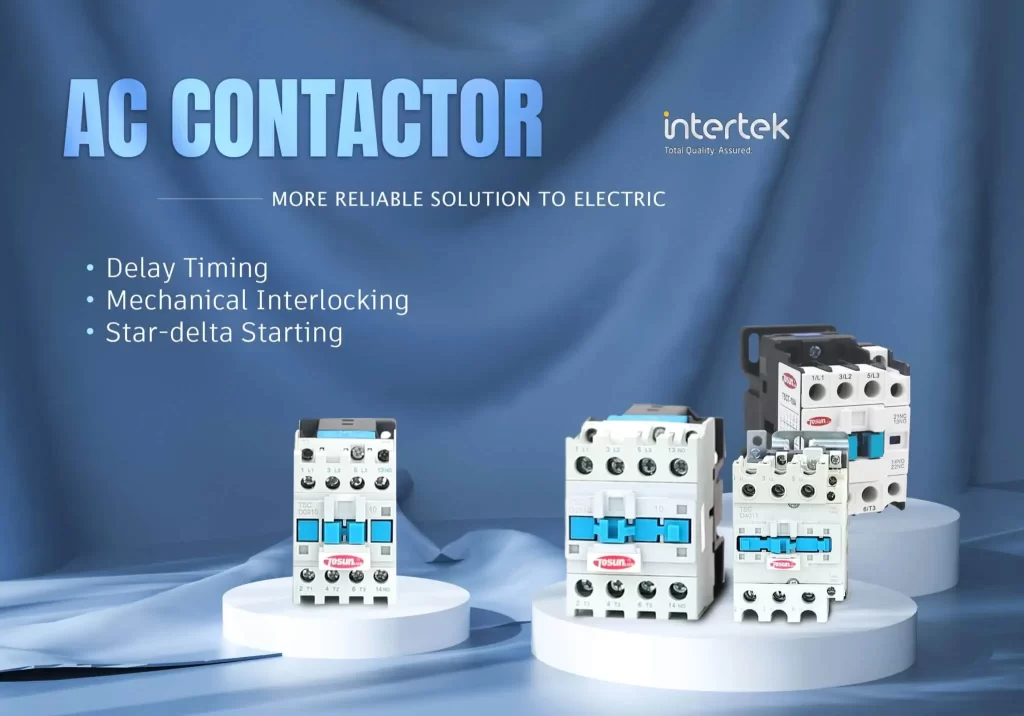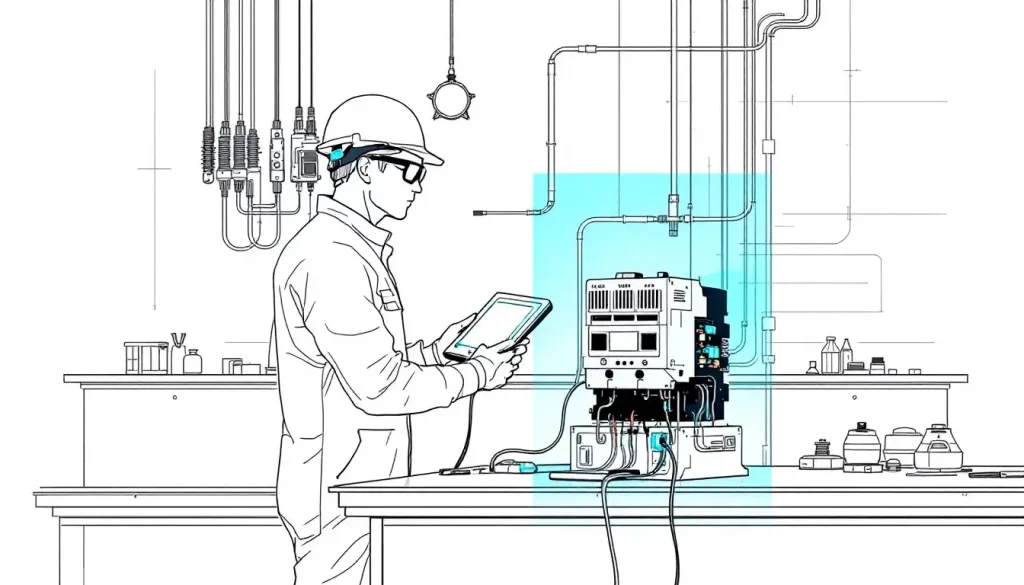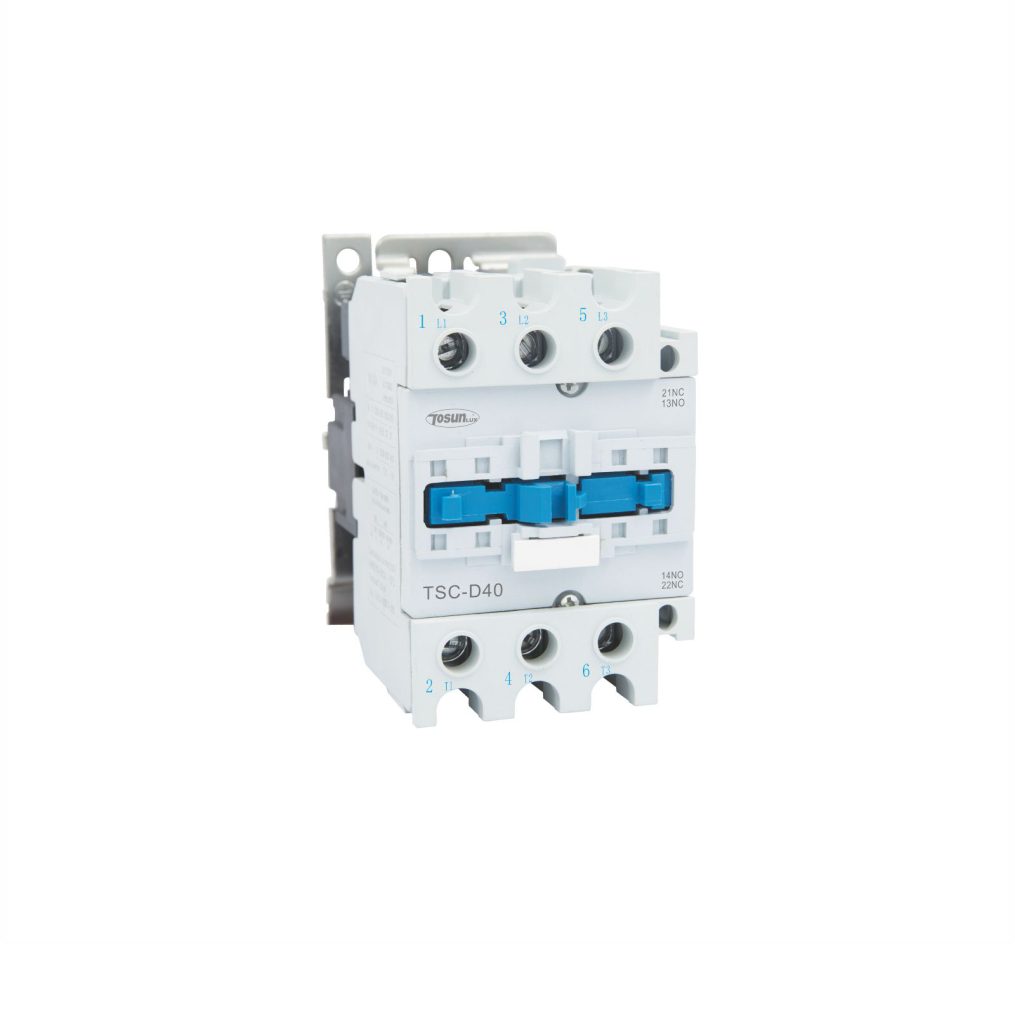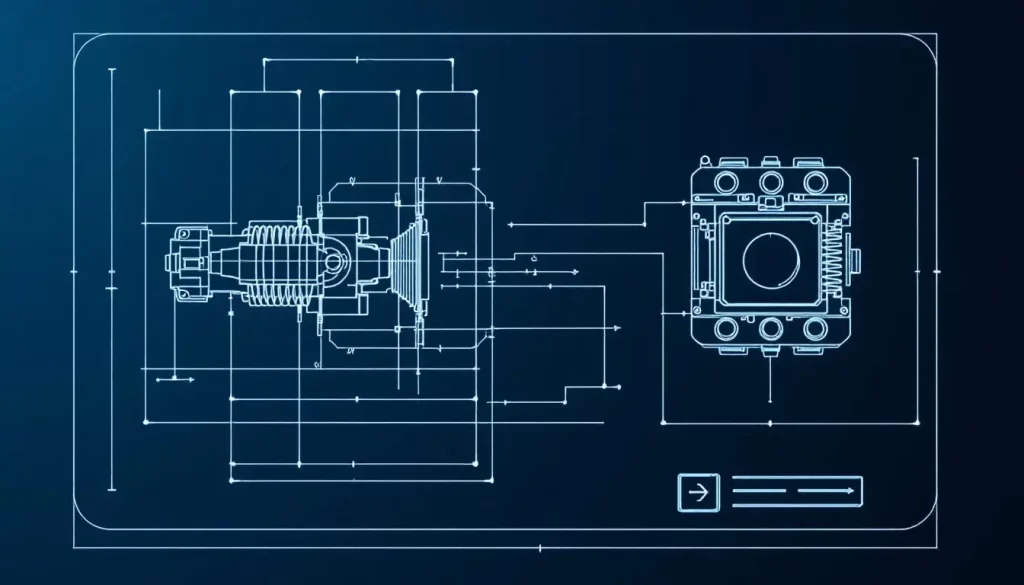How to Choose a AC Contactor
Table of Contents
ToggleLooking for the symbol for a contactor? Understanding this symbol is crucial for reading and interpreting electrical diagrams accurately. In this article, we’ll not only show you the symbol but also dive into choosing, testing, and troubleshooting AC contactors effectively.
How to Choose a AC Contactor
Choosing the right AC contactor is key for your AC unit to work well and last long. Here’s a simple guide to help you make the right choice:

- Match the Voltage: Ensure the contactor’s voltage rating matches your system’s maximum voltage. For example, if your AC unit operates at 240 volts, choose a contactor rated for at least 240 volts to avoid overloading.
- Check the Current Rating: The contactor should handle more than the load current and the initial surge current. For instance, if your compressor and motor draw 30 amps, opt for a contactor with a rating of at least 40 amps to manage high inrush currents safely.
- Select the Right Pole Configuration: AC contactors come in different configurations like 2-pole, 3-pole, and 4-pole. A 3-pole contactor is ideal for three-phase loads, while a 4-pole contactor might be needed for more complex setups.
- Consider Lifespan: Look for a contactor with a long mechanical and electrical lifespan. This ensures it can handle many cycles before needing replacement, saving you time and money in the long run.
- Fit and Size: Make sure the contactor fits your control panel. Measure your panel space and check the contactor dimensions before purchasing.
- Budget and Quality: Compare prices from different manufacturers. Choose a contactor that fits your budget but also check for quality certifications like CE and UL. These certifications ensure the contactor meets safety and quality standards.
By following these steps, you can select an AC contactor that ensures efficient and safe operation of your electrical components and devices.
How to Test a AC Contactor

Testing an AC contactor is easy and can help avoid unnecessary replacements. Here’s a step-by-step guide to ensure your system works properly:

- Turn Off the Power: First, switch off your air conditioner and disconnect electrical power to the condenser unit. This step is crucial for safety.
- Access the Contactor: Open the control panel to find the contactor. It usually looks like a small black rectangle with several wires attached.
- Document the Wiring: Before removing any wires, take a clear photo of the wiring setup. This will help you reconnect everything correctly later.
- Use a Multimeter: Set your multimeter to the OL (Open Loop) setting. Connect it to the low voltage terminals on the contactor.
- Check the Resistance: A healthy contactor will show a reading between 5 and 20 ohms. If it’s below 5, the contactor is likely faulty and should be replaced.
Following these steps helps you quickly determine if your AC contactor is working well or needs replacing. Regular testing can prevent bigger problems and keep your electrical devices running smoothly.
Troubleshooting Common AC Contactor Issues

Troubleshooting AC contactor issues can be easy if you follow these steps:
- Stuck Contactor: If the contactor doesn’t open or close, it might be stuck due to high power causing the contacts to stick. This can stop your AC from working right.
- High Resistance: High resistance in closed contacts can mean they are worn out. This makes the electrical flow uneven and might need a new contactor.
- Obstructions: Bugs or dirt can block the contactor. Clean regularly to keep it clear and working.
- Water Damage: If water gets into the contactor, it can break. Make sure it’s in a dry place to avoid this problem.
- Loose Wires: Loose or wrong connections can cause issues. Check and tighten all wires to ensure everything is connected correctly.
By keeping an eye on these common issues and maintaining your AC contactor, you can keep your air conditioner running smoothly and efficiently.
Conclusion
Choosing the right contactor is essential for ensuring the safety and efficiency of the electrical power systems it controls. Evaluating the load capacity and durability of the contactor can prevent equipment failures and hazards.
For top-quality AC contactors and other electrical components, reach out to TOSUNlux, a trusted supplier in the industry. Visit their website or contact their team for expert advice and high-performance products tailored to your needs.
Tel: +86-577-88671000
E-mail: ceo@tosun.com
Skype: tosunelectric
Wechat: +86-139 6881 9286
WhatsApp: +86-139 0587 7291
Address: Room No.1001 Wenzhou Fortune Center,Station Road, Wenzhou, China
REQUEST A QUOTE
WhatsApp us
 : +86-139 0587 7291
: +86-139 0587 7291 English
English Español
Español Русский
Русский Français
Français العربية
العربية Português do Brasil
Português do Brasil Українська
Українська Türkçe
Türkçe Polski
Polski Nederlands
Nederlands Italiano
Italiano Bahasa Indonesia
Bahasa Indonesia हिन्दी
हिन्दी اردو
اردو አማርኛ
አማርኛ Հայերեն
Հայերեն ไทย
ไทย Монгол
Монгол فارسی
فارسی Shqip
Shqip Ελληνικά
Ελληνικά


